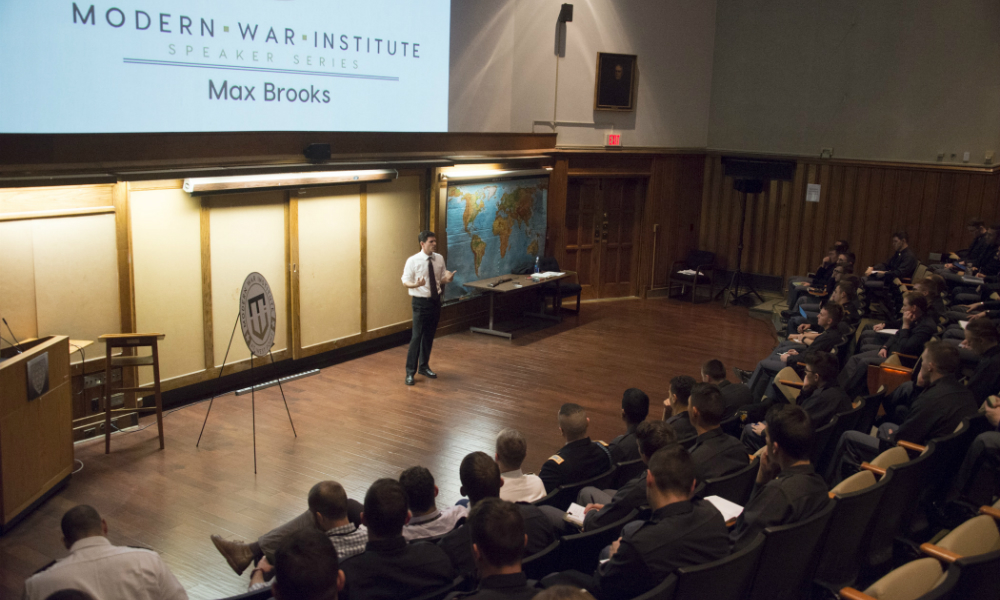On Thursday, January 19, Max Brooks discussed the importance of creative thinking to a roomful of cadets. As part of the Modern War institute’s Speaker Series, Brooks, an MWI Non-Resident Fellow, drew on lessons ranging from the novelty of a TV show like The Sopranos to the invention of the M1 carbine by a bootlegger in a North Carolina prison as examples of creativity that had a lasting impact. He stressed that it took courage to champion new ideas in the face of cultural resistance or bureaucratic inertia. Brooks asked why we did not invite the North Vietnamese, who had fought us to a draw back in the 1970s, to teach cadets about the tenets of counterinsurgency, much like how the FBI brings in hackers or banks hire forgers. “Why not learn from our enemies?” he asked.
The author of The Harlem Hellfighters and New York Times-bestselling World War Z, Brooks says in an age when the US military is chiefly fighting “operations other than war,” it is more critical than ever to reward creative thinking and new ideas, even down to the tactical level.
“There is no support system for courage under pressure,” he noted. “This is not just a military problem but also a human problem.” The trouble is partly one of biology, given that as social animals, he said, “we are hardwired to fit in.” The US Army does not tend to promote or award stars for bucking conventional wisdom, and that’s a problem that Brooks argued needs to be addressed.
He cited the Prussian model of centralized general staffs and war colleges, partly upon which the US Army is modeled, as being unsuited for fighting Tito’s insurgency in Yugoslavia following World War II. He cited the US Army’s inability to innovate during Vietnam and later in Iraq, despite the existence of previously published field manuals detailing how to conduct counterinsurgency or urban operations. He closed with a powerful message, that one of the cadets will one day be briefing the president in the Oval Office about a combat operation. The president in his suit will be well-versed on warfare and well-educated about international relations. “He will understand war, but not get it. There’s a difference between understanding something and getting it.” As future leaders who will not just study war but actually “get” war once they have deployed, Brooks encouraged cadets to have the courage to voice their ideas throughout their careers.
“I’ve been a fan of Max Brooks for a long time—I read The Zombie Survival Guide and World War Z as a kid—but hearing him here, he has so many interesting ideas about how we should think about and fight our wars,” said CDT James Riford, ’18 (B3). “Brooks is familiar with the military, but he speaks a different language and brings a different background, one that’s really important and that we can learn from.”

